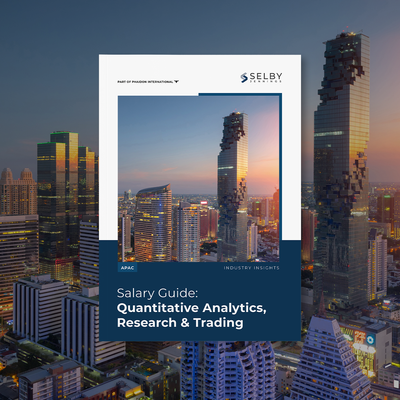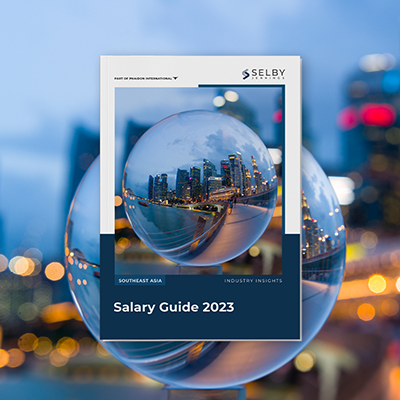quantitative-research-and-trading
6 FAQs on Quant Finance Careers
Quantitative Analytics, Research & Trading is currently one of the highest paying fields within Financial Services and has become a much sought-after career option in the industry. With Asia emerging as the world’s fastest growing economic region, it is attracting many new entrants. For professionals building a career in Asia's Financial Sciences & Services industry, it is critical to be forward-thinking and innovative. Employers, on the other hand, must strive to attract and retain top talent. Over the past two years, Asia’s strong wage growth has prompted many Quantitative Finance and Technology experts to consider changing careers, particularly in Investment Banking. In order to remain competitive, banks are making concerted efforts to improve the development of junior managers, with some banks going as far as offering a 10-20% salary increase for Quantitative Engineering roles. Keen to stay up to date with China's Financial Services market updates, exclusive industry insights, and the latest job openings? Follow us on WeChat. Follow us on WeChat.According to Yuqi Ding, Assistant Vice President of Selby Jennings and a specialist in Quantitative talent, “It is difficult to predict the future direction of the talent market in the Quantitative Finance field. Therefore, deciding who to hire, how to hire, and whether it is the right time to find new development space is not a simple matter. At this time, professional talent specialists are particularly important.” Here Ding Yuqi addresses some frequently asked questions regarding current trends. When planning a career in the Quant Technology sector, what are the career development objectives I should be focusing on? “The Quantitative industry in Asia generally follows a linear structure, with clear roles consisting of Quantitative Researchers, Portfolio Managers, and Team Leads. “Those with 2-3 years of work experience are deemed to have completed the fundamental entry-level step needed to be recognized as an industry newcomer. Gradually, they amass trading experience or develop strategies in a specific area, to become either a Portfolio Manager or Team Lead, managing investment portfolios and making independent investment decisions with the company's support.” After how many years of experience should I seek a new role or progression? “Looking beyond unpredictable macroeconomic fluctuations, the ideal time for a job transition is determined by how well the current organization meets an employee's individual professional goals. For example, Quantitative professionals in sell-side investment banks, who have been there for more than two years, may find it more difficult to switch to a buy-side Quantitative hedge fund. As such, it is important to factor this into the decision-making process. “Meanwhile, Quantitative researchers in a buy-side Quantitative fund, who have been in their role for more than two years, may contemplate a move into portfolio management. For more established, independent portfolio managers however, it is advisable to explore new platforms when their strategies have had a consistent track record for an extended time. “Throughout the process, it is crucial to remain alert to shifts in the talent market. If the current environment prevents you from developing your strategy and launching new products, it would be prudent to pursue an organization with a more accommodating environment to avoid increasing your opportunity cost by staying.” What is considered as ‘job-hopping’ to companies that are hiring for Quant & Tech talent? “It is very likely that organizations and talent specialists will overlook applicants with consecutive short-term employments that span less than one year due to their lack of stability. This standard is consistent, whether they are applying to local Chinese hedge funds or firms overseas. “When a job switch was caused by factors beyond their control, candidates can provide an explanation when approaching new opportunities to pass initial screening stages. These can include, for instance, a company's funding problem or a shift in management. “More experienced individuals who have held jobs for a longer period of time can usually excuse shorter tenures earlier in their career. However, for junior applicants who that cannot provide a valid justification for previous short tenured employments, they may be declined an interview altogether.” When is the best time to change roles, a) during the year, and b) in relation to my career timeline? “March and April are considered the most opportune seasons for job-seekers in this market, when the majority of job vacancies become available. Therefore, your prospects of finding a new job are more favorable in this period than any other time. “Whilst it is common for Quantitative hedge funds to hire candidates year-round, some even go as far as to create positions for the most suitable applicants they encounter. Therefore, it is recommended that job seekers remain abreast of the current market trends, and engage with the support of professional talent partners to ensure they stay updated with any opportunities. “Those who are working in Quantitative roles or data/algo-related roles on the sell-side that demonstrate enthusiasm for buy-side Quant research opportunities should make the switch as soon as possible, as the longer they stay on the sell-side, the harder it may become to switch career paths.” Is it feasible to transition into FinTech with prior experience solely in a pure tech environment (e.g. software)? “Over the past two years, the tech industry has changed immensely, resulting in many software Engineers considering a new path in Quantitative Finance.” “Organizations in this market generally prefer applicants with financial industry experience, however, if an applicant possesses strong technical expertise and familiarity with cutting-edge technologies such as machine learning, deep learning and programming projects, they will likely qualify for a position in funds.” What are the current Quant talent hiring trends in the industry? Is now a good time to be looking for new opportunities?Regardless of any challenges in the industry, Quantitative Analytics, Research & Trading is still ripe with opportunities, and Selby Jennings is here to support those hiring, and those looking for new roles for themselves, as a specialist talent partner in FinTech and other Financial Services. Feel free to reach out to our talent specialists and begin a discussion about your career trajectory.If you are a job-seeker, Register with usand submit your CV to begin browsing our job openings. If you are a client looking to source the best talent, please Submit your vacancyor Request a call backfor an introduction to our hiring services.Stay up to date with China's Financial Services market updates, exclusive industry insights,and the latest job openings by following us on WeChat.Quickly follow us by scanning the QR code with your WeChat app below:
Read More

















